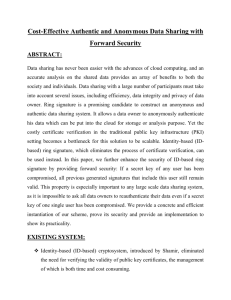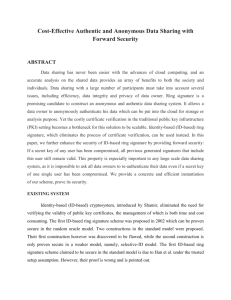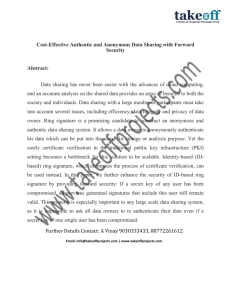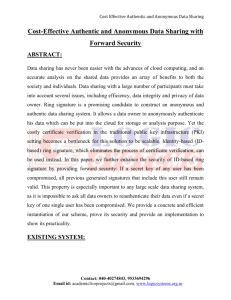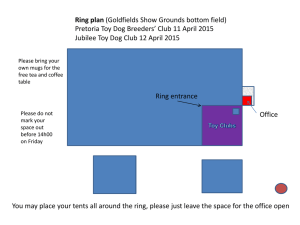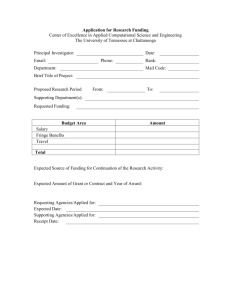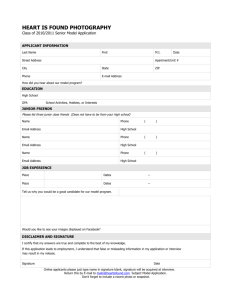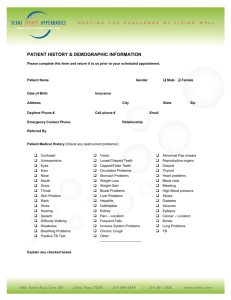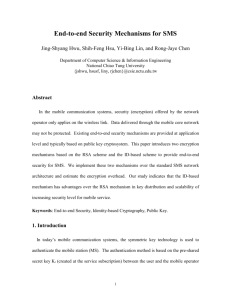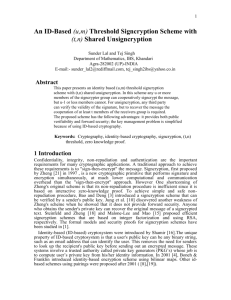- Krest Technology
advertisement
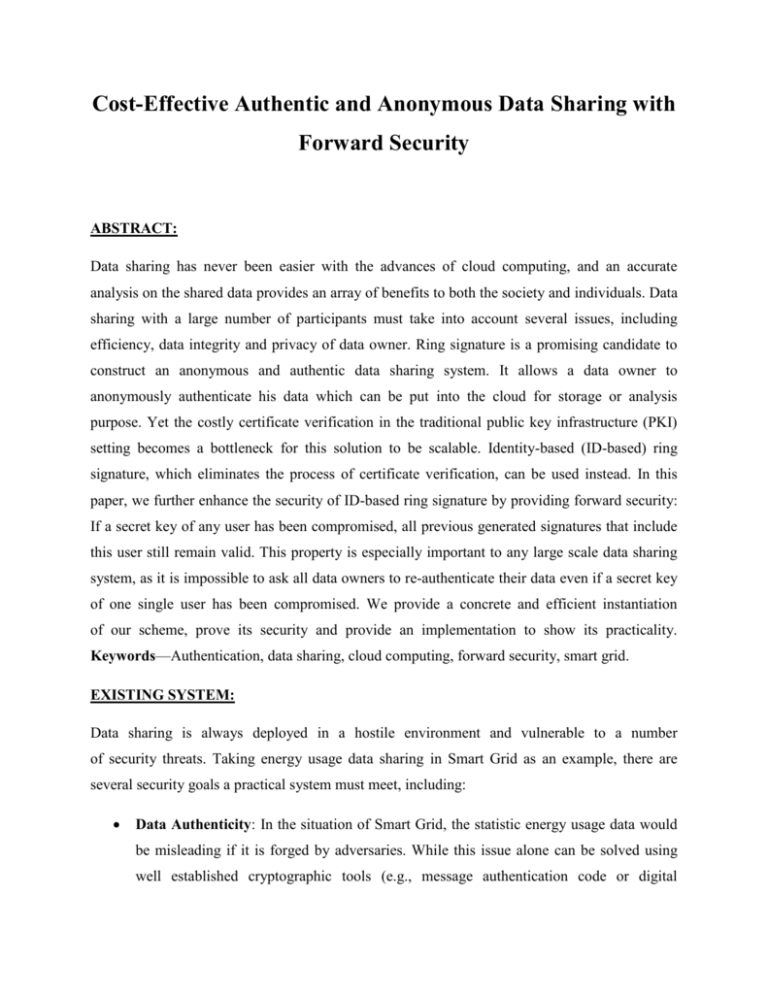
Cost-Effective Authentic and Anonymous Data Sharing with Forward Security ABSTRACT: Data sharing has never been easier with the advances of cloud computing, and an accurate analysis on the shared data provides an array of benefits to both the society and individuals. Data sharing with a large number of participants must take into account several issues, including efficiency, data integrity and privacy of data owner. Ring signature is a promising candidate to construct an anonymous and authentic data sharing system. It allows a data owner to anonymously authenticate his data which can be put into the cloud for storage or analysis purpose. Yet the costly certificate verification in the traditional public key infrastructure (PKI) setting becomes a bottleneck for this solution to be scalable. Identity-based (ID-based) ring signature, which eliminates the process of certificate verification, can be used instead. In this paper, we further enhance the security of ID-based ring signature by providing forward security: If a secret key of any user has been compromised, all previous generated signatures that include this user still remain valid. This property is especially important to any large scale data sharing system, as it is impossible to ask all data owners to re-authenticate their data even if a secret key of one single user has been compromised. We provide a concrete and efficient instantiation of our scheme, prove its security and provide an implementation to show its practicality. Keywords—Authentication, data sharing, cloud computing, forward security, smart grid. EXISTING SYSTEM: Data sharing is always deployed in a hostile environment and vulnerable to a number of security threats. Taking energy usage data sharing in Smart Grid as an example, there are several security goals a practical system must meet, including: Data Authenticity: In the situation of Smart Grid, the statistic energy usage data would be misleading if it is forged by adversaries. While this issue alone can be solved using well established cryptographic tools (e.g., message authentication code or digital signatures), one may encounter additional difficulties when other issues are taken into account, such as anonymity and efficiency; • Anonymity: Energy usage data contains vast information of consumers, from which one can extract the number of persons in the home, the types of electric utilities used in a specific time period, etc. Thus, it is critical to protect the anonymity of consumers in such applications, and any failures to do so may lead to the reluctance from the consumers to share data with others. • Efficiency: The number of users in a data sharing system could be HUGE (imagine a smart grid with a country size), and a practical system must reduce the computation and communication cost as much as possible. Otherwise it would lead to a waste of energy, which contradicts the goal of Smart Grid. Disadvantages: It is difficult to share the data with others. PROPOSED SYSTEM: We propose a new notion called Forward Secure ID-based Ring Signature, which is an essential tool for building cost-effective authentic and anonymous data sharing system. For the first time, we provide formal definitions on forward secure ID-based ring signatures. We present a concrete design of forward secure IDbased ring signature. No previous ID-based ring signature schemes in the literature have the property of forward security, and we are the first to provide this feature. We prove the security of the proposed scheme in the random oracle model, under the standard RSA assumption; Advantages: Provide security in data sharing The elimination of the costly certificate verification process makes it scalable and especially suitable for big data analytic environment. The size of a secret key is just one integer. Key update process only requires an exponentiation. We do not require any pairing in any stage. System Architecture: Fig: A solution based on ID-based Ring structure MODULES: 1. ID-Based ring structure 2. Notions of Security 3. Key Exposure 4. Forward Secure ID-based Ring Signature Module Description: 1) ID-Based ring structure: The aforementioned three issues remind us a cryptographic primitive “Identity-based ring signature", an efficient solution on applications requiring data authenticity and anonymity. ID-Based ring structure is both time and cost consuming In an IDbased cryptosystem; the public key of each user is easily computable from a string corresponding to this user’s publicly known identity (e.g., an email address, a residential address, etc.). 2) Notions of Security: The security of IDFSRS consists of two aspects: forward security and anonymity. Before giving their definition, we consider the following oracles which together model the ability of the adversaries in breaking the security of IDFSRS. • Extration Oracle (EO): On input an identity IDi and a time period t, the corresponding secret key ski,t ∈ D for that time period is returned. • Signing Oracle (SO): On input a time period t, a group size n, a set L of n user identities, a message m ∈ M, a valid signature σ is returned. 3) Key Exposure: Key exposure is the fundamental limitation of ordinary digital signatures. If the private key of a signer is compromised, all signatures of that signer become worthless: future signatures are invalidated and no previously issued signatures can be trusted. Once a key leakage is identified, key revocation mechanisms must be invoked immediately in order to prevent the generation of any signature using the compromised secret key. 4) Forward Secure ID-based Ring Signature: Here we assume that the identities and user secret keys are valid into T periods and make the time intervals public. SYSTEM REQUIREMENTS: Hardware Requirements: System : Pentium IV 2.4 GHz. Hard Disk : 40 GB. Floppy Drive : 1.44 Mb. Monitor : 15 VGA Colour. Mouse : Logitech. Ram : 512 Mb. Operating system : Windows XP/7. Coding Language : JAVA Front End : AWT & Swings Database : MYSQL Software Requirements:
